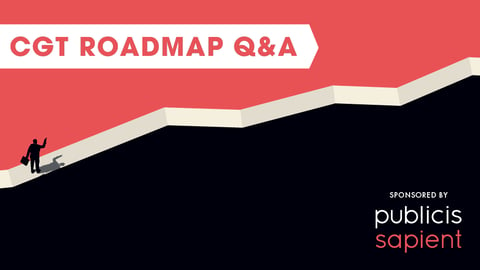Personalization in CPG: Empowering Connections Through Trustworthy Data
Within CPG, staying ahead means more than keeping shelves stocked — it’s about creating connections that resonate. Personalization, AI, sustainability, and data privacy aren’t just trends; they’re the foundation of how brands interact with consumers and build lasting trust.
Explore how these forces are reshaping CPG strategies and why trusted data is essential for success.
Personalization: Turning Data Into Meaningful Connections
I’ve often heard executives ask, “How can we truly personalize at scale when we’re working with so much data?” Personalization in CPG goes beyond offering tailored recommendations; it’s about fostering genuine connections with consumers.
Shoppers today expect relevance at every touchpoint, from targeted promotions to tailored product suggestions. Meeting this expectation requires more than surface-level insights. It involves integrating purchase histories, real-time interactions, and market trends into actionable strategies. But here’s the challenge: personalization efforts only work if the data driving them is accurate, consistent, and well-managed.
Leaders who prioritize data governance and integration enable their organizations to craft personalization strategies that feel authentic. The result isn’t just better consumer experiences; it’s measurable growth through increased loyalty and repeat purchases.
AI: Moving Beyond the Hype to Deliver Results
Let’s be honest, AI is often seen as the future of business, but not every implementation meets expectations. Many CPG leaders hesitate because they know adopting AI without a solid foundation can lead to underwhelming results.
AI’s potential hinges on its ability to work with high-quality, well-governed data. When done right, it can reveal consumer trends, optimize supply chains, and predict demand with precision. For example, predictive analytics helps brands identify shifts in consumer behavior, enabling faster responses to market changes.
AI isn’t limited to operational improvements; it also empowers executives to make smarter, faster decisions. When embedded strategically and paired with trusted data, AI serves as a critical tool for innovation, helping brands stay agile and relevant.
Sustainability: Turning Values Into Business Value
Sustainability today goes deeper than compliance; it’s a demand from consumers who expect brands to act responsibly and prove it. Consumers want to understand the environmental and social impact of the products they buy, from sourcing to packaging.
For CPG companies, this involves more than adopting green initiatives. It requires collecting and sharing data that supports environmental, social, and governance (ESG) claims. By clearly communicating metrics like carbon footprints or recyclable packaging, brands build trust and strengthen relationships with eco-conscious consumers.
Sustainability also drives innovation and efficiency. Investments in sustainable practices can lead to cost savings, better stakeholder relationships, and stronger brand equity. For CPG leaders, embedding sustainability into their strategies transforms it from a challenge into an opportunity.
Data Privacy: Earning the Right to Innovate
Data privacy has moved past being a regulatory issue to being central to consumer trust. Shoppers want personalized experiences, but they also need reassurance that their data is secure and used responsibly.
Leading with transparency and accountability builds this confidence. Clear opt-in policies, anonymized data practices, and robust security measures show consumers that their privacy is valued. When companies earn this trust, consumers are more likely to share their insights, deepening the brand relationship.
CPG leaders must recognize that data privacy involves more than meeting legal requirements, it’s about fostering long-term trust and loyalty. By doing so, they create a solid foundation for future innovation.
The Common Thread: Trusted Data as a Strategic Asset
What ties all these priorities — personalization, AI, sustainability, and privacy — together is data. Trusted, high-quality data fuels every initiative, enabling companies to innovate confidently, connect authentically, and adapt quickly.
Building this foundation demands more than adopting new technologies. It requires creating a culture that values accuracy, governance, and transparency at every level of the organization. When that happens, data evolves from being a resource to becoming a strategic asset.
The future of CPG is delivering value that consumers can feel and trust. The opportunities are immense for leaders ready to embrace this shift.
Arnjah Dillard is the North America retail practice lead for Stibo Systems.





